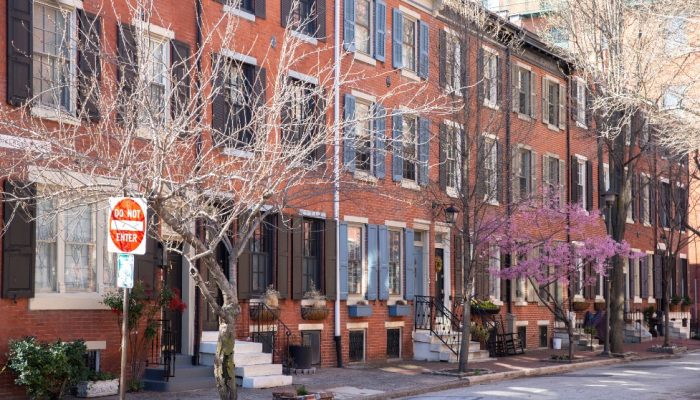If you own a property in Philadelphia, you’re responsible for paying the City’s Real Estate Tax. This year’s bills are due March 31, but you can pay now to avoid accruing interest and penalties. Here are three quick ways to stay on track with your property taxes:
-
Pay now
Paying your 2023 bill in full and on time is the best way to stop extra charges from being added to your balance. The Philadelphia Tax Center makes viewing and paying your bill online easier than ever. Use the “Search for a property” link under the “Property” panel to find and pay your balance. You can also select “Make a payment” under the “Payments” panel to get started. You only need your property address or OPA number. This year’s bills were mailed in early December. If yours is delayed or lost, you can still find your balance and pay online at tax-services.phila.gov.
-
Get help
It is always best to pay your balance on time, but if you cannot afford to do that, help is available. In addition to payment plans, the City offers a range of Real Estate Tax relief programs to help qualifying Philadelphians settle their property tax debts:
- You may qualify for our Active Duty Tax Credit program, which pauses property tax payments for qualifying Philadelphia homeowners. You must be on active duty outside Pennsylvania and your principal residence must be in Philly to qualify. Visit our Active Duty Tax Credit webpage to learn more and how to apply before March 31.
- Our Real Estate Tax Installment Plan program is helping thousands of senior citizens and low-income homeowners spread their Real Estate Tax bill into affordable monthly payments. We are now accepting current-year applications. Make sure to submit yours before the March 31 deadline.
- Our Senior Tax Freeze program allows qualifying Philly seniors to permanently ”freeze” their Real Estate tax bill at the current amount —meaning your property tax bill will never increase, even if the assessment or tax rate increases. Visit our Low-income senior citizen Real Estate Tax freeze webpage to see if you qualify and learn how to apply. You have until September 30 to submit your application to this program.
Also, check out our Owner-occupied Real Estate Tax payment agreement (OOPA), Longtime Owner Occupant Program (LOOP), and Homestead Exemption webpages to find out if you qualify and learn more about how to take advantage of these property tax relief programs.
-
Get into a payment plan
As noted above, paying your Real Estate Tax bill in full is always best. But if you cannot pay your full balance, please call (215) 686-6442 and ask about our property tax payment plans. The Department of Revenue offers several payment agreements with flexible terms for homeowners. Even better, head to the Philadelphia Tax Center and apply for a payment agreement in just minutes. Please call (215) 686-6442 if you need help or have questions about your online application.
Paying your Real Estate Tax is important: Property tax payments provide revenue that supports essential City services, including the police and fire departments, local schools, and parks. Your account balance will continue to grow and can be transferred to a collection agency if you delay paying this City tax.
For translation services, please call (215) 686-6442.




